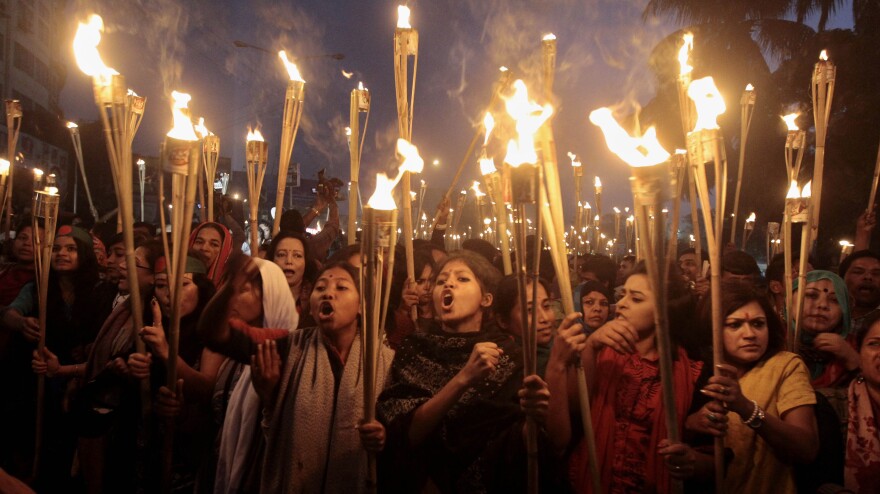Bangladesh has hanged an Islamist leader convicted of committing atrocities in the country's war of independence from Pakistan more than 40 year ago.
Abdul Quader Mollah, a top leader in the Jammat-e-Islami party, was originally scheduled to be hanged Tuesday, but he gained a temporary reprieve pending appeal. The country's Supreme Court denied the appeal on Thursday. Mollah, 65, was hanged at 10:01 p.m. Thursday.
Mollah was the first person convicted by Bangladesh's International Crimes Tribunal to be executed. The tribunal was established in 2010 by Prime Minister Sheikh Hasina to look into abuses committed during the conflict in which some 3 million peoples died. Most of those charged are members of the opposition, who are accused of aiding Pakistani soldiers in committing the violence.
Here's how Bangladesh's Daily Star newspaper reported it:
"He didn't wince once, neither did his heart skip a beat when he led his men to thrash a two-year-old child to death and slit the throats of a pregnant woman and two minor girls.
"Around 42 years later, Jamaat leader Abdul Quader Mollah finally had to pay for these acts of cold-blooded savagery, as he walked the gallows at 10:01pm in the first-ever execution in a war crimes case.
"The hanging of Mollah, 65, who earned the nickname Mirpurer Koshai (butcher of Mirpur) for his sinister role during the Liberation War, represents a watershed in the nation's pursuit of a closure on the wounds inflicted in 1971."
The newspaper said he'd be buried at his ancestral village.
Hundreds gathered in the capital, Dhaka, to celebrate the execution, The Associated Press reported, but there were also protests against it that turned violent.
Copyright 2020 NPR. To see more, visit https://www.npr.org.

